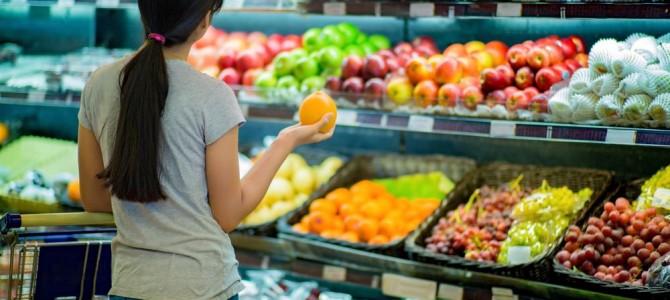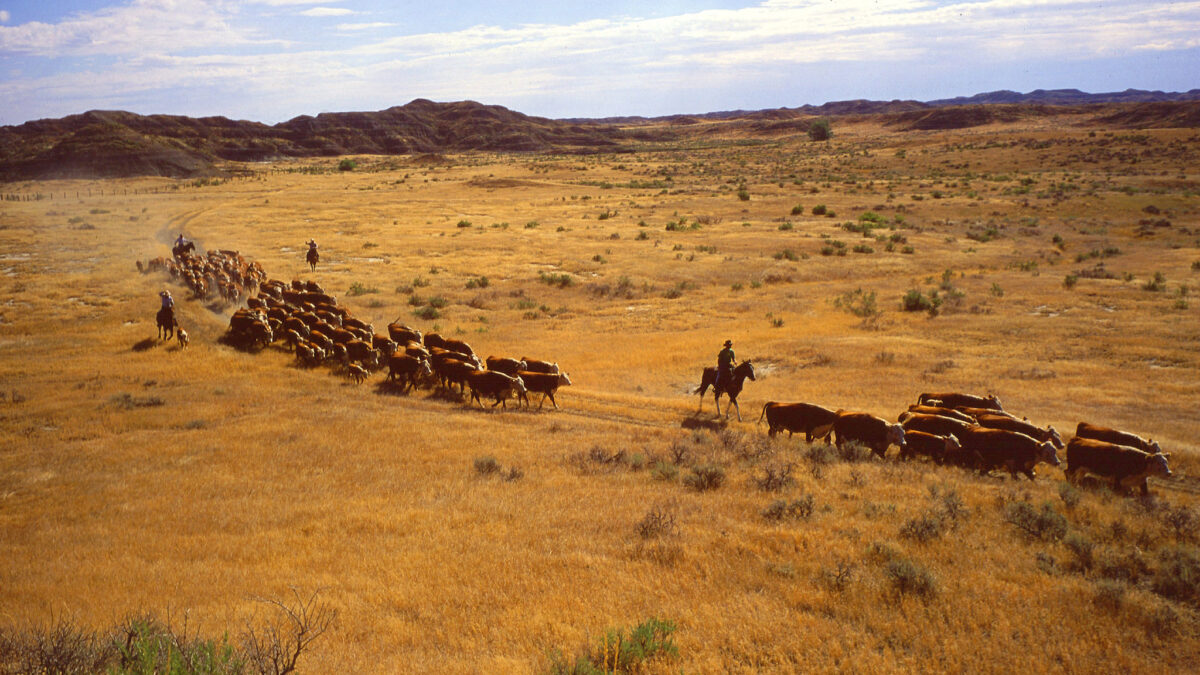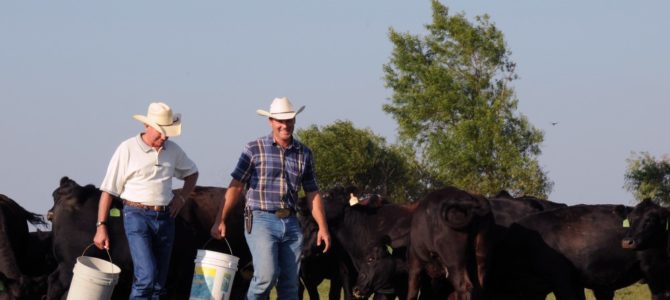
Americans are paying too much for food products due to too many government barriers to free trade in agriculture, international trade attorney Scott Lincicome said at the Heritage Foundation last week.
“American families pay about 50 percent more for a stick of butter than their foreign counterparts,” he said. “Now why on earth should American families be paying such a brutal butter tax?”
Lincicome, an adjunct scholar at the Cato Institute, is the author of a recent Heritage Foundation study, “Promoting Free Trade in Agriculture.” In it, he blames government measures designed to protect American farmers—seen in trade barriers in agriculture as non-tariff barriers (such as subsidies) and tariffs (government taxes on imports and exports)—for hurting both American farmers and consumers.
For instance, tariff rate quotas (TRQS) limit imports, often to 5 percent of American consumption. This means once dairy imports get above that set volume, the U.S. government imposes a high tax on the product to keep overseas dairy competition from lowering prices for Americans, allowing American farmers to charge them more. This kind of protectionism is to blame for, among other things, higher butter prices and fewer butter options for American consumers.
“It doesn’t seem like that good of an idea, when you put it in those terms,” Lincicome said. “We’re basically having American families subsidizing American farmers.That disproportionately hurts poor American families.”
In his paper, Lincicome argues for further trade liberalization in America’s agricultural sector. He makes the case that while the United States has already seen improvements since joining global trading associations such as the World Trade Organization (WTO), which work to lower trade barriers between member nations, the situation could get still better.
Freer Trade Increased U.S. Farmers’ Exports
According to the paper, the United States saw a positive explosion in imports and exports after joining the General Agreements on Tariffs and Trade (GATT)—which later became WTO in 1995—and the North American Free Trade Agreement (NAFTA).
“Both exports and imports of farm goods approximately tripled in value between 1998 and 2014,” Lincicome’s paper states, citing statistics from the U.S. Department of Agriculture. “Over this period, which coincides with implementation of the WTO and the NAFTA, annual U.S. farm exports increased from approximately $52 billion to $150 billion, while imports rose from approximately $37 billion to $112 billion.”
The WTO also protects free trade through its commitment to prohibiting discrimination and promoting transparency between member nations.
In the WTO, “you can’t isolate single countries for unfavorable or favorable treatment,” Lincicome said. “You can’t treat your own producers, whether it be farm products or manufacturers, any different than you treat other manufacturers or farmers.”
How the WTO Ensures Fair Trade
The organization also has an excellent dispute settlement policy, a court-like system that hands down nonbinding decisions members generally follow because it’s advantageous. Under this set-up, countries can retaliate against one another with duties on the offending member’s products—but since tariffs hurt everyone, most disputes get resolved before it comes to that point.
The United States has won 27 of the 29 disputes it has brought to the dispute system, Lincicome said.
“For instance, the WTO has brought India to the dispute settlement system because India was restricting various U.S. exports, particularly poultry products,” Lincicome said. “The U.S. won, India has actually resisted complying, and now the U.S. is threatening to levy hundreds of millions of dollars in retaliation. The hope for us is that the U.S. does not actually have to impose that retaliation.”
But even though the WTO features an excellent dispute settlement policy in which the United States has been extremely successful, the United States does not take full advantage of this system or use it to attack foreign subsidies. Instead, American regulators often prefer to send extra taxpayer money to foreign competitors rather than reduce costs for American consumers by trimming taxpayer handouts to U.S. producers.
“The cotton industry is the ultimate example,” Lincicome said. “Brazil brought the U.S. to the WTO and won the right to retaliate against the WTO for its cotton subsidies. Instead of removing the cotton subsidies, the US decided to pay Brazilian cotton farmers in technical assistance. So not only are we paying for American cotton subsidies, we’re subsidizing Brazilian cotton.”
Subsidies And Tariffs Aren’t Helping America
Moreover, despite the many clear benefits of free trade through organizations like the WTO, trade barriers persist in agriculture in the form of tariffs and other barriers. According to WTO statistics, the United States imposes a 3.56 percent tariff on most industrial products, but a 4.72 percent tariff on agricultural products.
“For some reason, the U.S. applies higher tariffs to farm products than it does to all other products,” Lincicome said. “It doesn’t really make sense.”
All these barriers to free trade, rather than protecting the American economy, actually make it worse, causing “global market distortions, booms and busts” because “governments are dictating production, output, and consumption instead of the free market.” In other words, when governments instead of individuals pick economic winners and losers, the system gets thick with cronyism and economic waste.
The paper criticized the “zero-for-zero” argument often used for sugar subsidies—the claim that the United States should get rid of its subsidies only when other nations do the same. Instead, Lincicome argued, the United States should “be aggressive” in battling foreign subsidies and improve its own economy “without having to wait for other countries to do likewise.”
“Believe it or not, protectionism hurts our own agricultural sector,” Lincicome concluded, pointing out that without restrictions on trade, American farmers could increase exports and actually have more output. “If we actually fully liberalized our own market, American farmers and ranchers would benefit.”









